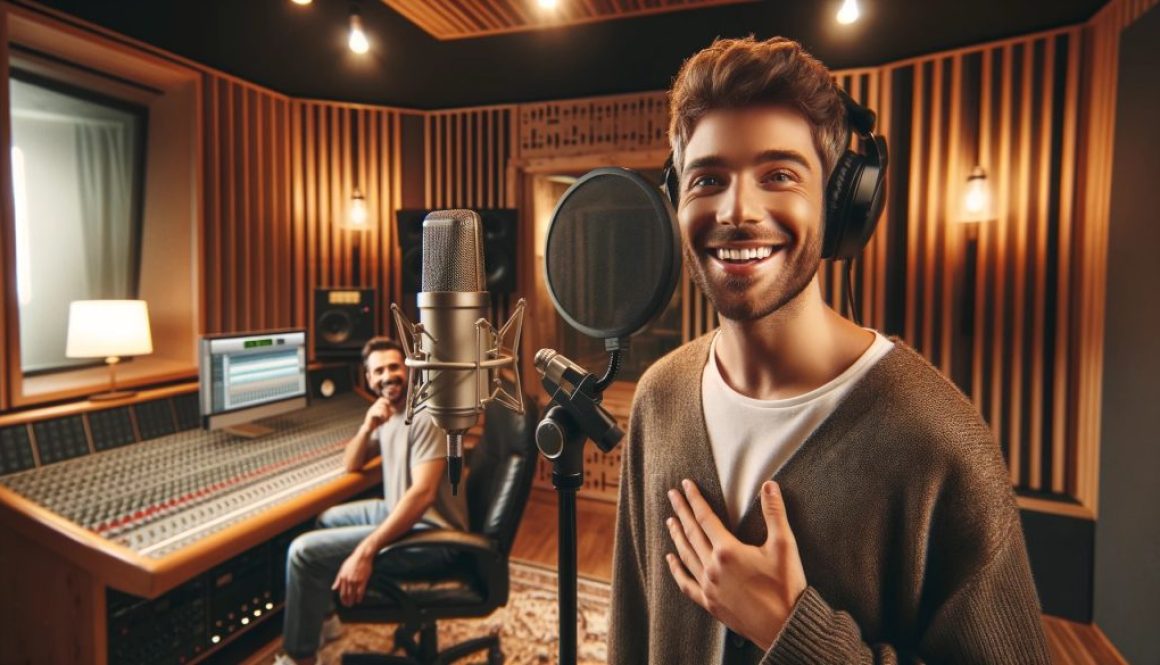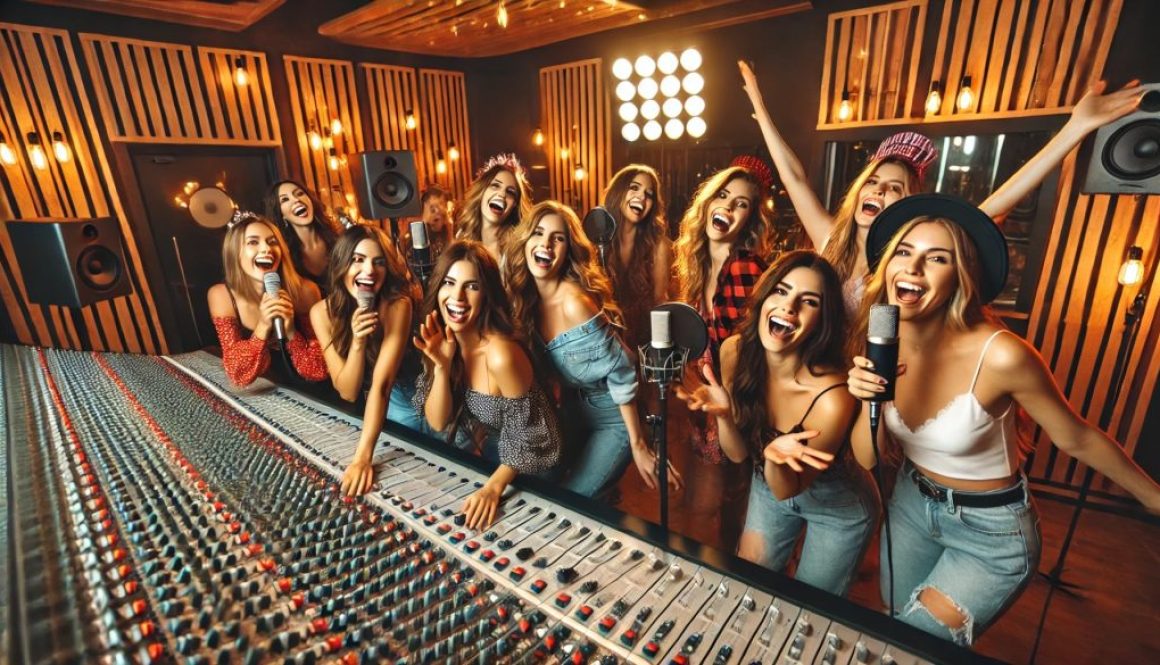
Så spelar du in en professionell låt – även om du aldrig sjungit förut
Så spelar du in en professionell låt – även om du aldrig sjungit förut
Har du drömt om att spela in en låt, men känner att du inte har den perfekta sångrösten?
Oroa dig inte! Med rätt guidning och teknik kan vem som helst skapa en fantastisk inspelning i en professionell musikstudio.
Här är våra bästa tips för hur du kan spela in en professionell låt – även om du aldrig sjungit förut!
Välj en låt som passar din röst
Om du är osäker på din sångröst är det viktigt att välja en låt som är bekväm att sjunga.
Välj en låt med enkel melodi och behagligt tonläge Undvik låtar med komplicerade vokalutmaningar eller höga toner
Testa att sjunga låten hemma innan inspelning för att känna dig trygg
Tips på bra nybörjarlåtar:
• “Stand by Me” – Ben E. King
• “Someone Like You” – Adele
• “Hallelujah” – Leonard Cohen
Värm upp rösten – Gör enkla övningar
Vocal warm-ups gör din röst klarare och stabilare.
Humming (nynna mjukt för att värma upp stämbanden)
Läpptriller (brumljud som vibrerar)
Skalövningar (sjung “do-re-mi” långsamt upp och ner)
Drick ljummet vatten för att hålla rösten smidig
Undvik mjölkprodukter och kall dryck innan inspelningen
Lär känna studions utrustning
När du kliver in i studion kommer du att se en hel del utrustning, men oroa dig inte – vi guidar dig genom allt!
Mikrofon – Håll ett jämnt avstånd och sjung rakt in i den
Hörlurar – Lyssna på musiken i realtid för bättre timing
Ljudtekniker – En proffs som hjälper dig att låta ditt bästa
Ta några testtagningar för att känna dig bekväm
Be om hjälp om du känner dig osäker – vi är här för att få dig att låta fantastisk!
Fokusera på känslan – inte perfektion
Det viktigaste är att sjunga med känsla, inte att låta perfekt.
Tänk på låtens budskap och försök att förmedla det med din röst
Slappna av och ha kul – det hörs i inspelningen!
Om du gör små misstag kan vi justera det i efterproduktionen
Många av världens största hits är inspelade av artister med unika röster, inte “perfekta” sångare!
Låt studioteknikerna fixa magin i efterhand
Även professionella artister redigerar sina röster för att låta sitt bästa.
Autotune & pitch correction – Justerar små toner om det behövs
Effekter som reverb & delay – Skapar en varm och fyllig ljudbild
Mixning & mastering – Gör att låten låter radiofärdig!
Slutresultatet? En professionell låt som låter fantastisk – även om du aldrig sjungit förut!
Redo att spela in din första låt? Boka din studiotid idag!
Vår studio i Göteborg är öppen för alla – oavsett erfarenhet!
Boka din inspelningstid och bli artist för en dag!
Dela detta inlägg med någon som drömmer om att spela in sin första låt!

